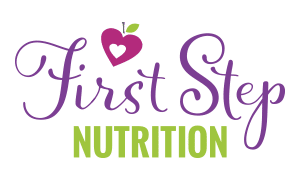
The Pregnancy Supplement You’ve Never Heard Of: MTHFR
You likely know of the importance of pregnancy folic acid supplements. Folic acid is a B vitamin required for normal cell growth and development. It helps prevent neural tube defects (NTD) very early in pregnancy, such as spina bifida. It may also prevent oral cleft and heart problems and high maternal blood pressure in pregnancy. I am a strong believer that folic acid supplements are important, and it’s been well proven that they decrease the risk of NTDs in pregnancy. In Canada, grains have been fortified with folic acid for this reason. The effect has been decreasing the prevalance of NTDs by 46%.

Health Canada has some good basic guidance on folic acid and folate (the food form of folic acid) here. Essentially the recommendation is to start supplementing with 400 – 1000 ug (0.4-1 mg) three months prior to pregnancy, and continuing through pregnancy. If you have a family history of NTDs, supplement 5mg per day.
What’s the problem with folic acid supplements?
What the standard recommendations don’t (yet) share, is that almost half of us have a genetic variation that decreases our ability to convert supplemental folic acid into the active form of folate that your body can use. This conversion depends on a gene called MTHFR (methylenetetrahydrofolate reductase). This MRHFR gene produces an enzyme that is needed to use folate and folic acid by converting it into the active form (L-5-Methyltetrahydrofolate).
Up to half of us have a variant of this gene that produces an enzyme which doesn’t convert much folate to the useable form. If you have this gene variant, your risk of having low blood folate levels is increased by 180%. This may put you at a risk for deficiency, which can cause a whole host of problems related to pregnancy as well as general health: neural tube defects, depression, anxiety, cognitive decline, heart disease and stroke, cancer, poor energy and anemia.
What is the solution?
How do you know if you have this “defective” (but normal) gene that doesn’t allow you to optimally use folic acid? You can do genetic testing (such as Nutrigenomix), which analyzes your MTHFR gene variant you. OR, just assume you have the defective gene, and take an active form of the supplement regardless! L-5-Methylftetrahydrofolate (5-MTHF) are supplements are available, and provide the active form of folic acid which everyone can use.
Bioavailability studies have proven that 5-MTHF supplements are at least as effective as folic acid in improving folate status (reference). A randomized double-blind placebo controlled trial of 144 women supplemented either folic acid, 5-MTHF or a placebo for 24 weeks. They measured folate levels at baseline and every 4 weeks, and found that those receiving the 5-MTHF supplements had significantly higher blood folate than the folic acid or placebo groups (reference). Other possible benefits of taking the active form of folate to have adequate folate status may be decreased anemia in pregnancy and decreased risk of preterm birth and pre-eclampsia.
Are there risks?
In contrast to regular folic acid supplements, 5-MTHF supplements have no tolerable upper intake level and do not mask vitamin B12 deficiency (reference). Unmetabolized synthetic folic acid may be a risk factor for cancer, depression and cognitive impairment. It is thought that 5-MTHF supplements will be less of a risk for causing these potential negative side effects of excess folic acid. As far as we know, it seems safer to take 5-MTHF supplements than regular folic acid supplements.
Where to buy MTHF supplements

You can purchase a prenatal multivitamin containing 5-MTHF made by Thorne research in Calgary at Cambrian Pharmacy or online at Amazon
Want to know more about pregnancy nutrition? Enter your email below for more nutrition tips:
Founder of First Step Nutrition | Registered Dietitian Nutritionist
Jen believes raising happy, well-nourished eaters who have a healthy relationship with food doesn't have to be a battle! She is an author and speaker with 18 years of experience specializing in family nutrition and helps parents teach their kids to try new foods without yelling, tricking, or bribing.






No Comments